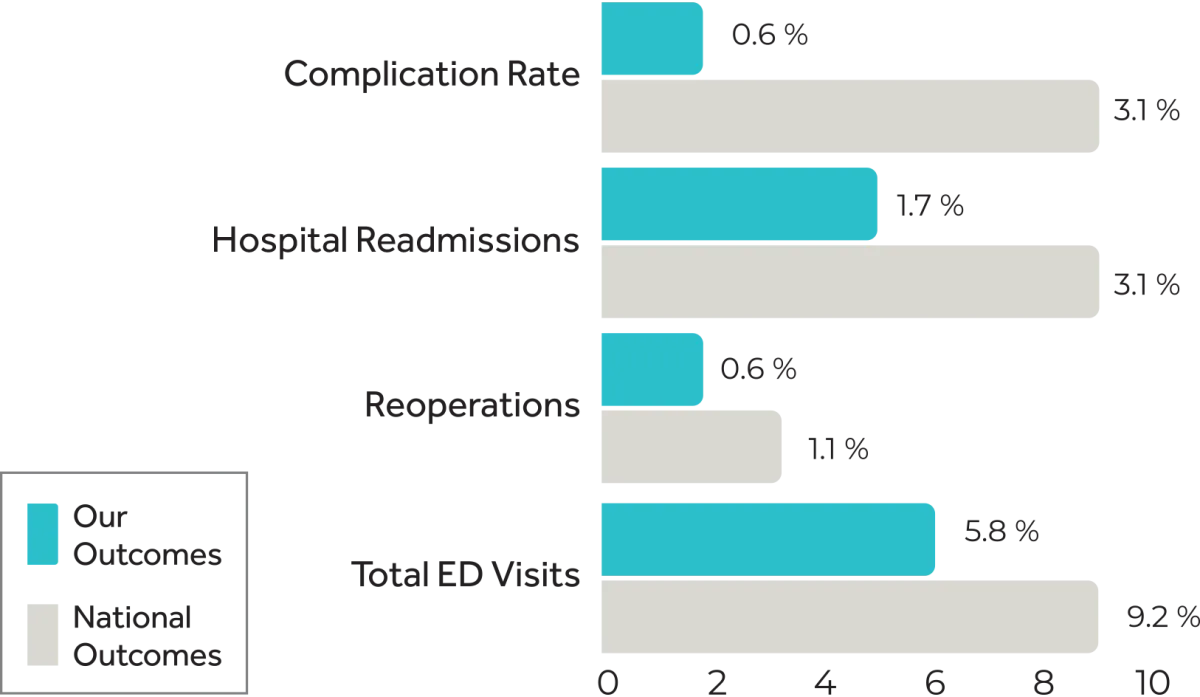Results and Outcomes
Experience is the foundation for excellence in surgery, as it is of most complex activities. That is why surgical volumes — the number of times a doctor has performed particular procedures — are a predictor of excellent outcomes in surgery.
Our surgeons' statistics back this up. Collectively, having more than 4,000 surgical cases under their belts, including more than 1,800 primary bariatric procedures, our surgeons maintain an impeccable record of excellent bariatric surgical outcomes and minimal complication rates at Stony Brook.
Patient Testimonial
Susan Dobias, a young female in her 30s, had issues with excess weight since her adolescent years. Eventually, weight-related health problems, including joint pain and a pre-diabetes diagnosis, led to her to seek treatment at the Bariatric and Metabolic Weight Loss Center. We offer an unparalleled combination of surgical excellence and experience, interdisciplinary expertise, and compassionate services tailored to every patient’s needs – including Susan’s.
Stony Brook Statistics
Stony Brook’s statistics far exceed national averages and, in fact, are some of the best reported in the country. The 2023 outcomes listed below are compared to those reported nationally.

Bariatric Surgery Results
In evaluating whether to have bariatric surgery, consider its impact on your health, healthcare costs and usage, and survival. Research demonstrates that bariatric surgery dramatically improves patients' health and helps keep them out of the hospital.
Bariatric Surgery Dramatically Improves Health
A 2022 umbrella analysis that included 28 different studies found significant evidence for bariatric surgery reducing the following health conditions:
- 38 percent reduction in all-cause mortality
- 54 percent reduced risk of stroke
- 51 percent reduced risk of cardiovascular events
- 44 percent decrease in total cancer incidence
- 75 percent reduction in diabetes-related mortality
- 65 percent reduction of PCOS incidence in 12 months
- 51 percent improvement in depression
- 42 percent improvement in anxiety
